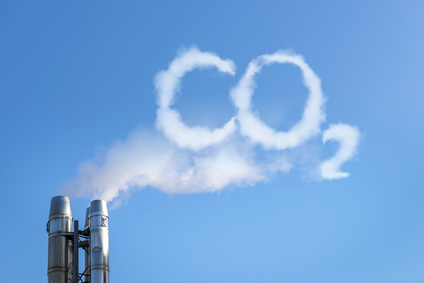Steel coalition promotes standard for measuring and reducing carbon emissions
by David Fleschen

An international group of leading steel producers today announced the formation of a coalition to call on the United States and the European Union to adopt a global emissions standard that encourages steel producers to use the cleanest steel production processes available.
The new coalition - the Global Steel Climate Council (GSCC) - supports a global standard that accelerates the transition to low-emission steel production and recognises the potential of a model of recycled steel produced in a circular economy to reduce carbon emissions.
The United States and the European Union are currently negotiating a new emissions standard for steel production. The GSCC states that an agreement should focus on the amount of emissions produced, not how steel is made. Most of the world's steel production is extremely carbon intensive, relying primarily on mined and processed coal, iron ore and limestone. However, other steelmakers - including those that now produce more than 70% of the steel made in the US and more than 40% of the steel made in Europe - use electric arc furnaces (EAFs), which mainly use recycled scrap to make steel and produce much lower carbon emissions.
"We have the technology to reduce carbon emissions in steel production by 70 per cent today," said Leon Topalian, chairman, president and CEO of Nucor Corporation, a founding member of the Council. "The global industry needs to build on the innovation that has already led to cleaner steel production in the United States, as green and digital economies around the world are built with steel - and what steel they're built with matters."
A "sliding scale" standard supported by high emitting steelmakers would increase greenhouse gas emission limits for mineral products nine-fold over recycled products, penalising EAF producers and allowing higher emitting steel to be falsely labelled as "green". Under a sliding scale, two steel products could be equally classified as environmentally friendly even though the production of one product produced several times the carbon emissions as the other.
"Steel is essential to our economies, including the world's essential infrastructure. This new standard will accelerate real reductions in greenhouse gas emissions and provide key decision makers with accurate data to make informed decisions," said Mark D. Millett, chairman, president and CEO of Steel Dynamics, chairman of the Steel Manufacturers Association and a founding member of the Council.
"We need to prevent steel producers from classifying their products as environmentally friendly when the same products with significantly lower carbon emissions are available on the market," said Francisco Cardona, Head of Public Affairs at CELSA Group, a leading European producer of low-emission steel produced in a circular economy and a founding member of the Council.
The main focus of the GSCC is to establish a standard that focuses on the following guiding principles:
- Reduce greenhouse gas emissions from the global steel industry.
- Establishing a standard that is independent of technology or production method.
- Establish a standard with a system boundary that includes Scope 1, Scope 2 and Scope 3 emissions.
- Establish a standard that is guided by a science-based glide path to achieve a 1.5 degree scenario by 2050.
- Provide relevant information on sustainable steel production to relevant decision makers.
"The single GSCC standard will encourage all producers to reduce their carbon emissions and create a level playing field for all producers. The negotiations between the US and the EU should not lead to a double standard and a negative move towards a dirtier environment. We can do better," said Philip K. Bell, President of the Steel Manufacturers Association and a founding member of the Council.
Source:

